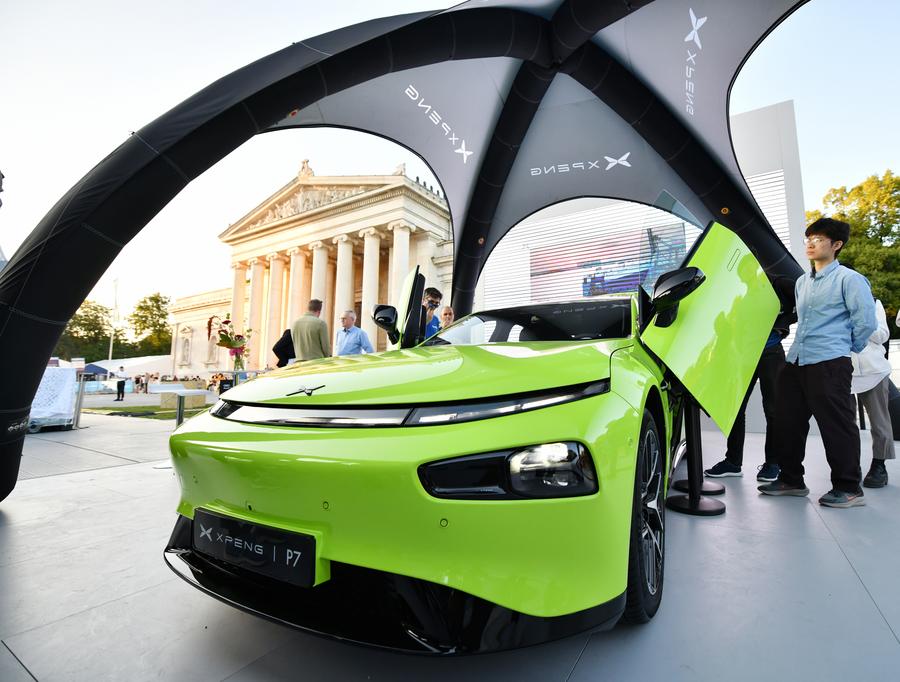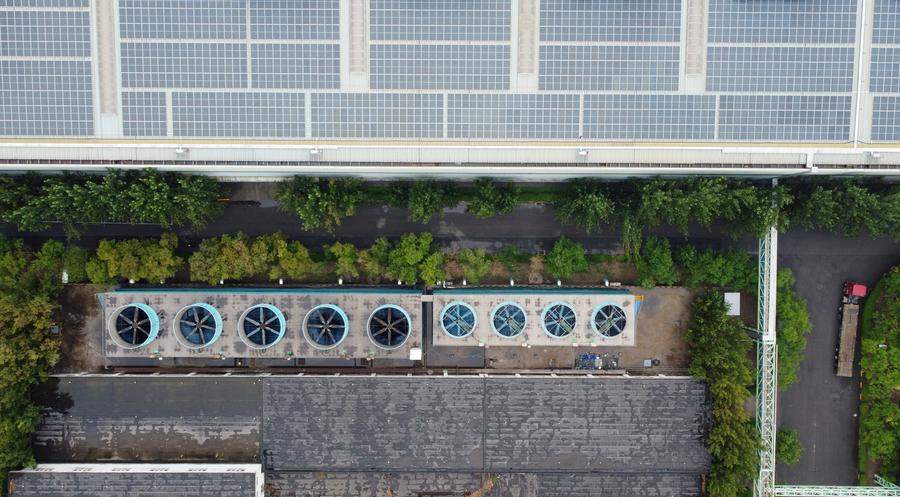People visit the booth of Chinese carmaker Xpeng during the 2023 International Motor Show, officially known as the IAA MOBILITY 2023, in Munich, Germany, Sept. 5, 2023. (Xinhua/Ren Pengfei)
China's competitiveness is a result of its timely strategic investments in critical sectors, a Zimbabwean official has said.
by Tafara Mugwara
HARARE, April 17 (Xinhua) -- China's industrial capacity and competitiveness in new energy vehicles are purely driven by market forces, a senior official from Zimbabwe's ruling party has said.
"There are better ways where humanity with a shared future can embrace the efficiencies which China is bringing in into the new energy sector across the board" so that there can be rapid movement by all societies to shift from debilitating fossil fuels to new energy vehicles, said Christopher Mutsvangwa, secretary for information and publicity for Zimbabwe African National Union-Patriotic Front (ZANU-PF), in an interview with Xinhua on Monday.
He dismissed the so-called overcapacity rhetoric, saying China should be applauded rather than criticized for making new energy vehicles more affordable and widespread.
An "interesting thing about China's vehicle manufacturers is that the most successful ones are not the ones from state-owned companies they are mostly from privately owned companies which are not reliant on what would normally be subsidized or state funding," Mutsvangwa said.
Mutsvangwa, who previously served as Zimbabwe's ambassador to China, said China's competitiveness is a result of its timely strategic investments in critical sectors.
"So you can't argue that they are relying on state subsidies; they are just doing the job better than the others," he said.
He said that from Zimbabwe's perspective, Washington's accusations are self-serving rather than fair to the world.
"It's a no-brainer that the Western world had a head-start in fossil fuel combustion starting with coal before we moved on to petroleum. So, the intellectual property for most of this fossil fuel engine sector of the world resides in Western countries," he noted.
"Now comes the shift to new energy electric vehicles where electricity is now the driver of modern mobility," said Mutsvangwa, adding that China has invested a lot in this area and owns many intellectual properties of electric vehicles production.
He said China is now reaping benefits from its strategic investment in the new energy value chains, which have given the country an advantage in producing competitively priced goods.
What gives China an advantage is having a full value chain, a more efficient manufacturing system and intellectual property, he noted.
Similarly, China has been strong in solar energy production and lowered the price of solar panels, he said, noting this benefits the world as "countries which are less endowed in resources can also afford to become part of the market of solar panels."
This aerial photo taken on July 12, 2023 shows solar panels on the roof of a workshop of the New Tianjin Steel Group in Tianjin, north China. (Xinhua/Zhao Zishuo)
The overcapacity rhetoric is meant to protect the United States' home market companies and therefore is detrimental to free trade, he said.
"Everybody can see that with global warming pressures, we are going to need electricity as the driver of new energy mobility," he said.
The Chinese read the signals very well, responded accordingly and invested in research and development and got the patents of this shift from fossil to new energy storage, he said.
In addition, Mutsvangwa said China's industrial capacity in new energy has also brought dividends to resource-rich economies.
Pointing to his country as an example, he said Chinese companies "have moved in in the last three years to dramatically raise investment in lithium sulfate production in Zimbabwe."
Mutsvangwa also highlighted the importance of cooperation between China and the United States, believing that cooperation between the two largest economies of the world is a positive development that can greatly benefit the global economy.






 A single purchase
A single purchase









